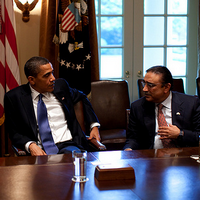On Nov. 26, NATO helicopters killed 26 Pakistani soldiers at Pakistan’s Salala checkpoint, mistakenly believing them to be Taliban militants. The incident provoked a furious reaction from Pakistan’s military and civilian leadership as well as from the population at large. In what was already shaping up to be one of the worst years ever for U.S.-Pakistan relations, the Salala incident represented the final straw. Pakistan immediately shut down NATO’s supply lines, ordered an end to U.S. drone strikes in Pakistani territory and boycotted the Bonn Conference on Afghan reconciliation.
Shortly thereafter, Pakistan’s Parliamentary Committee on National Security (PCNS) began a comprehensive review of Pakistan’s relations with the U.S., a step described by Ashraf J. Qazi, a former Pakistani ambassador to the U.S., as “born out of emotion, though in the right direction.” Now, after nearly two months of deliberations, the PCNS is set to release its recommendations on how to move forward. In addition to impacting future relations with the U.S., the Salala episode and its aftermath has important implications for Pakistan’s domestic politics.
The Pakistani Parliament has proposed 35 recommendations that fall under three broad categories: a review of foreign policy, the need for NATO forces in Afghanistan to respect Pakistan’s “red lines,” and re-engagement with the U.S. in the war on terror based on formalized agreements. Some of the major recommendations are: the formulation of a new and independent foreign policy based on equality and mutual interest; an end to U.S. drone strikes and operations such as the raid that killed Osama bin Laden; and parliamentary review and approval of all verbal and written agreements with the U.S., including “the nine agreements” signed under the Musharraf regime.

